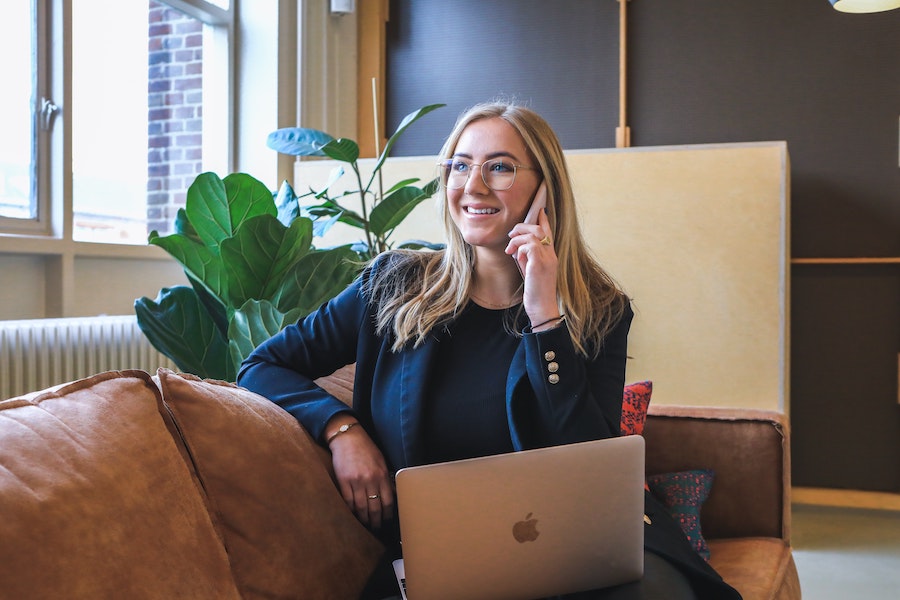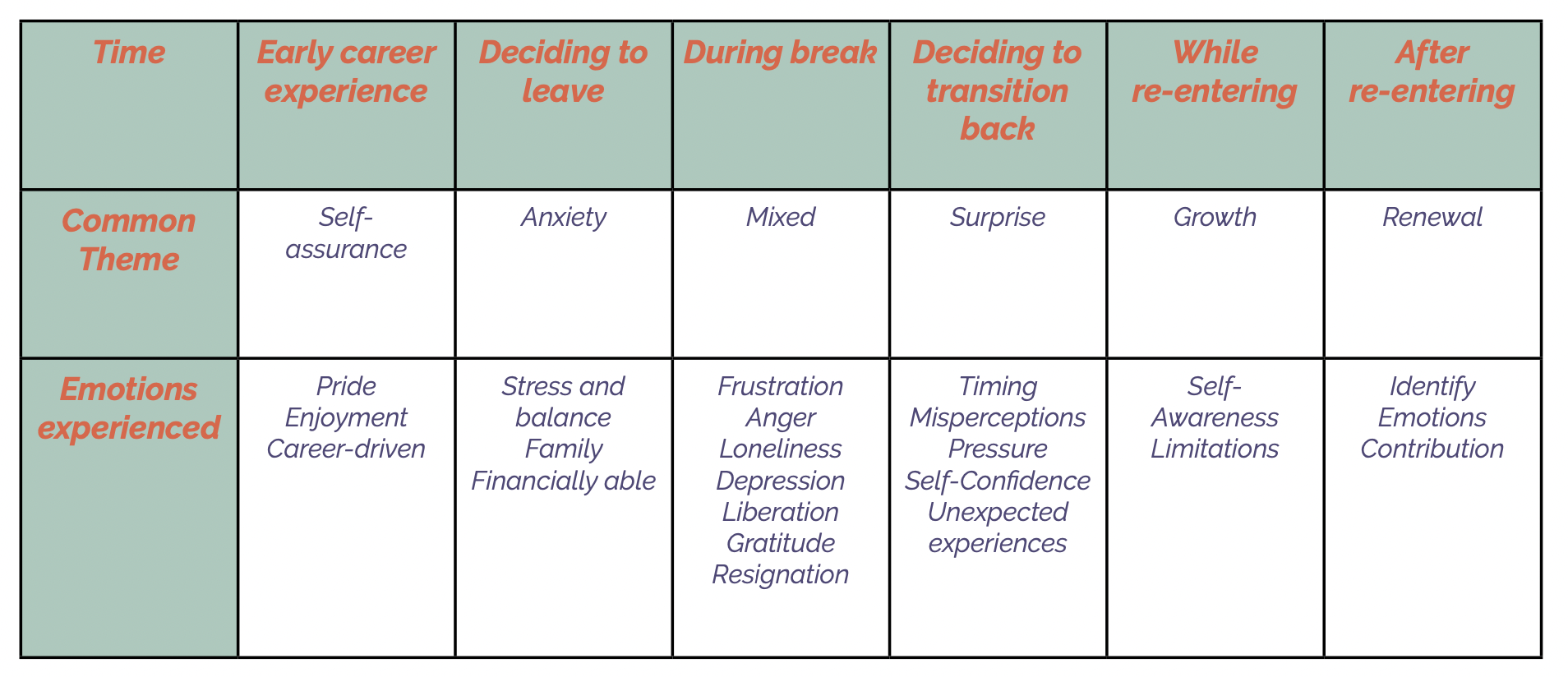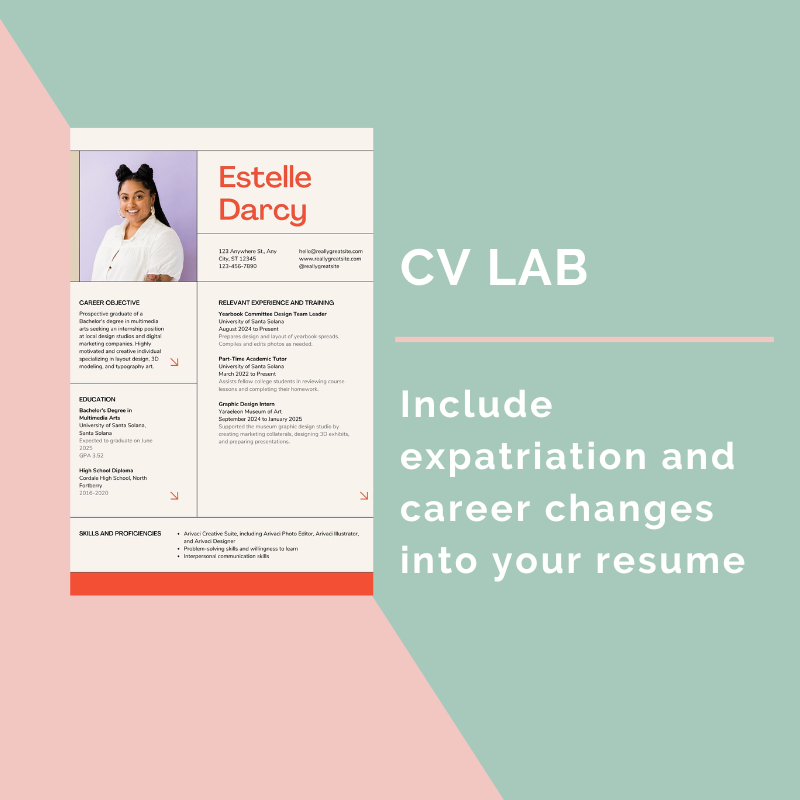
The emotional rollercoaster of a career break
A career break is a phase in life that is always associated with self-doubt and uncertainty. Often women make their peace with this time after they have re-entered the labor market and have found for themselves that they have enjoyed the best of both worlds. Only in retrospect are many women very grateful for this time and at peace with their decision. In this blog post, I am sharing the emotional rollercoaster of women around the globe with long career breaks. Read about Lisa, who re-entered the workforce after 7 years and learn from her personal approach.
The emotional rollercoaster women experience while not being part of the traditional job market
To research the question of how to re-enter the workforce after a long career break, I have interviewed women around the globe about their personal story, their emotions along the way, their struggle but also their personal answer to the question of HOW to get back on track. You can download the whole study for free by following this link here.
All the women interviewed described their emotional state over the break as a rollercoaster with unexpected highs and lows. No matter how short or long the break, women experienced times of gratitude, followed by phases of feeling lost and insecure about their decision-making. Reflecting on their decision to take a break after being back in the traditional job market, women shared very mixed feelings.
While all are grateful for the time they spend with their children or exploring the world, there is always this question of: How would my life look like if I chose to not step down.
The researcher Valente (2019) interviewed 6 women about their emotions before, during, and after the career break and the results totally overlap with the statements of my focus group. In the following chart, you can see the different emotions per state as a result of both interview streams:

While many leave their job with a positive job attitude and fond memories of their former career there is a certain level of anxiety when deciding to actually take a break from the traditional job market.
There are different reasons for WHY women are leaving the workplace and I have shared some interesting insights about that in this blog post here.
Also, the study by Valente confirmed the reasons mentioned in my sample group: an imbalance of work-life, family reasons, and the fact that it is financially possible. The emotions throughout the break itself are not specifically mentioned in the study quoted. However, in my own sample, the interview responses show a very mixed picture of all kinds of emotions often felt at the same time. Some are frustrated about not being able to work (e.g missing a work permit), and others are actually feeling angry that they are the ones taking a break to accommodate family needs. Most interview partners mentioned a feeling of being lonely and excluded from certain social circles and having trouble introducing themselves when feeling insecure about their non-work-related identity. On a positive note, some felt a sensation of liberation to not being forced to work in a job context that was not a good fit or being more able to live according to what is important to them. Feeling grateful for the time focusing on the family was often an emotion that has been discovered in retro perspective. When deciding to go back to work many are surprised by how easy or how hard it actually is. Almost all of the interview partners have faced surprises or misperceptions along the way. The confidence struggle came up in almost every interview. Women needed to learn to connect with their own strengths again and once they are about to re-enter the workplace they are more aware of their own assets and limitations. After returning back to work, most women are experiencing a strong shift in their identity and declare positive emotions.
Most interview partners mentioned a feeling of being lonely and excluded from certain social circles and having trouble introducing themselves when feeling insecure about their non-work-related identity.
The influence of social circles
During the conversations, I noticed parallels at different points in the interviews. This was also the case here with regard to the influence of social circles. Some women reported that they were comfortable with their non-working identity as long as they were surrounded by women who followed a similar life and career model. Some women reported that certain cultural groups in which it was more common to stay at home helped them to come to terms with this situation. They literally blossomed, felt well connected and cared for, and felt less isolated due to their lack of employment.
Women who did not have this environment, on the other hand, found it much more difficult. They often felt alone and left behind. The situation is similar when social structures change. For example, two of the women told how more and more friends in their circle of friends returned to work and at some point, they were the only ones who had time during the day. This sudden change in the social environment was then taken as motivation to imagine a professional future for themselves. In that sense, social circles can have a pull effect and work as an incubator in both directions.

“I befriended many women who also had advanced careers and decided to stay home with their kids. So I just did not ask myself whether to work or not. But then one by one my friends returned to work and I was the only one left. I realized that a lot of years had gone by. I did not really feel the urge to go back to work but also lacked clarity on where else to focus my energy to.”
“Then we went back to {birth country} and I didn’t ask myself this question until my youngest started kindergarten. Only then did I notice that there were fewer and fewer women I could meet.”
Case study - following the emotional journey of 3 women taking a career break
Let‘s take a look through the keyhole into the emotional world of three women who have made their way back into the job market. In this blog post, I will share Lisa’s journey from deciding to drop out, her emotions during the break, and her path back to the workforce. There are two more case studies within the study which you can access here.
In all three stories, I have changed the names and censored countries and languages. This is to protect privacy, but also to show that it is irrelevant where this person moved to. In my experience in career counseling, we give far too much weight to factors such as location. While one woman considers a country to be particularly supportive of working mothers, another woman reports that she left the country precisely because of the lack of support. It is, therefore, more about one‘s own character and ideas about life than about evaluating countries in terms of work opportunities and making a blanket assessment. The following case study provides insights into the emotional world during the break and put it in context with exit motivation and the self-image of work after re-entering:
Case study of Lisa, struggling with her confidence after a career break of 7 year, moving countries and becoming a mum
Reason for exiting the job market:
Lisa quit her career to follow her partner on his assignment abroad. She struggled to get back to her former job in purchasing due to work permits and language barriers. In the end, she will have not been part of the traditional job market for 7 years. Much longer than initially anticipated.
“We moved abroad and first I did not have any work permits and then later my child was born and there was no real thought about going to work. And when we moved to {country}, the language was another added barrier for me to work.”
Emotions over the course of the break:
While Lisa has good reasons not to work in the beginning, the void that not working left in her personal and social life became more obvious over time. Lisa expressed that she felt very lonely and excluded at that time and it was hard for her to feel at home in a foreign country without work. Like many accompanying partners, she struggled with defining her own identity next to being a mother and a wife and expressed regret for not being more proactive during that time.
“The first years without a career were ok. I had a real reason not to work as I did not have a work permit and later had a baby. But when my child went to kindergarten I felt very lonely and also depressed. Everyone asked me what I do and who I am and I know they just have been curious but my inner voice told me that something is wrong with me. I only said that “I am the wife of..” and I did not like it. I was really depressed.”
Trigger to get back to work:
In Lisa’s story, there was no actual sudden trigger like a new spot at a kindergarten or changed circumstances that made her go back to work. It was the ongoing level of frustration of not being part of this new country. While applying for jobs, she expressed many negative emotions regarding her confidence. She questioned her abilities after 7 years of not being part of the traditional job market. In the end, her concerns have not become true and while being back at work she realized that she was actually capable of more than she has thought and applied for a job that was a way better fit and challenged her more.
“I had a lot of fears. I was not confident at all. I thought I was not good enough. I was afraid they will fire me in my trial period. My husband always told me that they were not interested in firing but hiring but I was anxious. I thought my {language} was not good enough. But in the end, I left that first job as I found a better job…I see it with other colleagues now – they are doing way more mistakes. They are doing very obvious mistakes even though they are locals and they don’t have the language barrier. I was really surprised by that and that gave me confidence. That first job made me very confident so I was ready for the dream job. Looking back I even think that I was overqualified for that job!”
Re-entry Ticket:
While networking is a key ingredient for many to get back to the job market, networking was not working at all for Lisa. She was not very keen on networking as she was struggling with her confidence at that time and did not really know where to start. So she stuck to what she knew best: Using job portals and the traditional application approach to get the interview. She also skilled herself regarding local regulations on how to structure your CV and present yourself in interviews. She ended up working in the same industry that she left. She also talked about her career break very openly without trying to hide any aspects of that journey in the interview. She was not really heavily interested in volunteer work and did not cover up her time with such activities.
“I remember I had an interview for a job as a receptionist – a really low-entry job and I did not get it. I was devasted. I cried for two hours straight. Back then I did not understand that I was overqualified and that it was just not meant to be. I continued applying via Indeed and LinkedIn. Everyone around me told me I should network but this was just not working for me. I tried the network at my husband‘s company but that did not really work. Now I understand that I was looking for the wrong jobs. So basically doing traditional job portal applications worked best for me. I also signed up for career fairs from universities that were open to attending and learned a lot from the workshops there. I got lots of information about the local requirements….I changed my CV to the local format. I just googled some CVs and I did mention the break adding my volunteer activities. But the career break was always the first question in the interview and I answered straightforward and honest. I told them that I first did not have a work permit and then was on mum duty and after that, they never asked me again.”
The role of work today:
Asked about the meaning of her career today, Lisa is sharing very proudly and confident about the impact she has on her company. For her, work is not only giving back financial independence or a new part of her identity but also a social circle she did not know that she was longing for that much.
“Work is my daily life. It is networking and socializing. I was in a vacuum before, I was so limited in social interactions. Now I have daily social interactions, I am constantly learning, and receiving insightful ideas and I feel so satisfied knowing these people. Before I was alone in a foreign country. But now at work, I am not a mother but a coworker and we all have the same goal: To improve the company.”
What are you feeling when reading through Lisa’s story? Does this sound familiar? Did it resonate? Within the study, I am portraying two more journeys in detail as these case studies can be a great support when feeling lonely in this adventure of potentially going back to work. As stated, you can download the whole study here or send me a message to info@shsarethelove.blog and share your thought with me.
I hope you found this blog post helpful for your current situation. Let me know if I can be of any help! I offer the opportunity for free 1:1 discovery calls to discuss your situation and I also offer free monthly global coffee dates where women from all around the world meet to discuss their global lifestyle decisions. You can safe your spot here.

Do you know anyone who might find this helpful? Share the Love by sharing this article
Ebook for the accompanying partner
Quitting your job and joining your partner abroad does not need to end your professional career. Learn what options you have and how to define what you really want during your time abroad. Make it to your own personal journey and get the most out of it!











